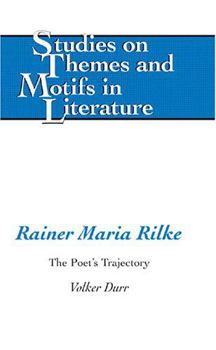Rainer Maria Rilke: The Poet's Trajectory
Influenced by Hegel and Nietzsche, and inspired by stays in Italy and France, as well as travels to Russia, Spain, and North Africa, Rainer Maria Rilke nevertheless sought desperately to be original. He rejected all «idées reçues,» whether they were of God, reality, or literature, instead creating his own absolute. He searched for the «real,» re-formed German poetry, and revolutionized Western narrative prose with Malte Laurids Brigge. While Rilke's work is marked by two cesuras, after which it displays important advances in diction and the figuration of verbal icons, it becomes ever more esoteric. However, there are also constants throughout his oeuvre in thematics, topoi, and diction - for example, the preoccupation with death, figures such as the angel, key nouns, alliterations, and noun sequences. His fear of death drove him to adopt «the open,» an idea conceived by the dubious mystagogue Alfred Schuler that surfaces throughout Rilke's poetry and triumphs in Sonnets to Orpheus and Duino Elegies.
Format:Hardcover
Language:English
ISBN:0820474010
ISBN13:9780820474014
Release Date:January 2006
Publisher:Peter Lang Inc., International Academic Publi
Length:185 Pages
Customer Reviews
0 rating





